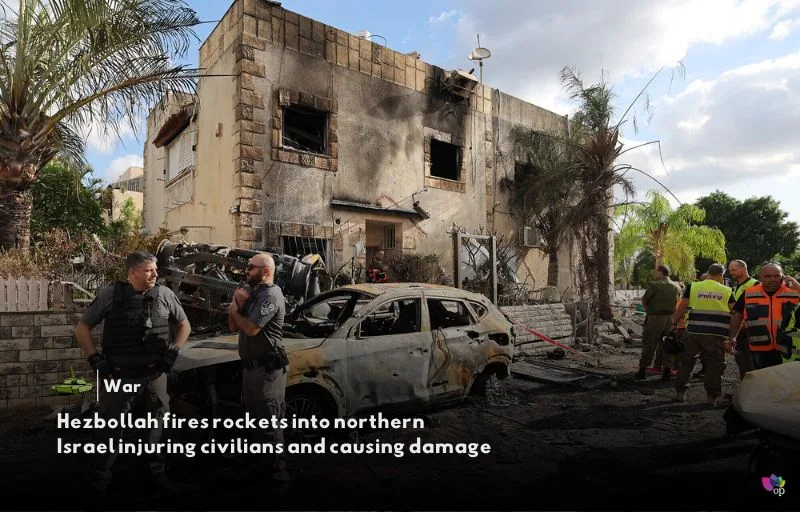According to the reports on Tuesday (12 November), late Monday (11 November, local time), Hezbollah launched around 190 rockets into northern Israel, targeting towns such as Bi’ina, Karmiel, and Haifa. Seven people, including a toddler, were injured from the attacks, with several others suffering shrapnel wounds. The barrage caused extensive damage to homes, cars, and infrastructure, especially in areas like the Galilee region and the Kiryat Ata suburb of Haifa.
While the Israeli Defense Forces (IDF) intercepted several rockets, some still hit their targets, leading to further damage and injuries. In addition to rockets, Hezbollah launched drones from Lebanon, one of which was intercepted near Malkia while another crashed near Liman. A video posted on social media by the IDF highlighted the extent of the damage, underscoring the severity of Hezbollah’s continued aggression.
This escalation follows an October 2023 assault by Hamas, with tensions between Israel and Hezbollah steadily rising. Recently, Israeli Prime Minister Benjamin Netanyahu confirmed Israel’s role in a previous attack on Hezbollah in Beirut, adding further strain to the already volatile situation. Hezbollah claimed responsibility for the rocket attacks, which included striking a training base in Karmiel, marking one of the largest recent attacks on Haifa.
Meanwhile, ceasefire talks involving Israel and Hezbollah are reportedly underway, with the United States assisting to prevent further arming of Hezbollah. Despite these efforts, Hezbollah has denied any official ceasefire proposal, and Israeli officials warned they would continue operations if Hezbollah persists in its military actions. An Israeli airstrike earlier in the day also intensified hostilities, killing 30 people in Lebanon, as both sides grapple with rising casualties and damage in the ongoing conflict.
References



This is the right blog for anyone who wants to find out about this topic. You realize so much its almost hard to argue with you (not that I actually would want…HaHa). You definitely put a new spin on a topic thats been written about for years. Great stuff, just great!